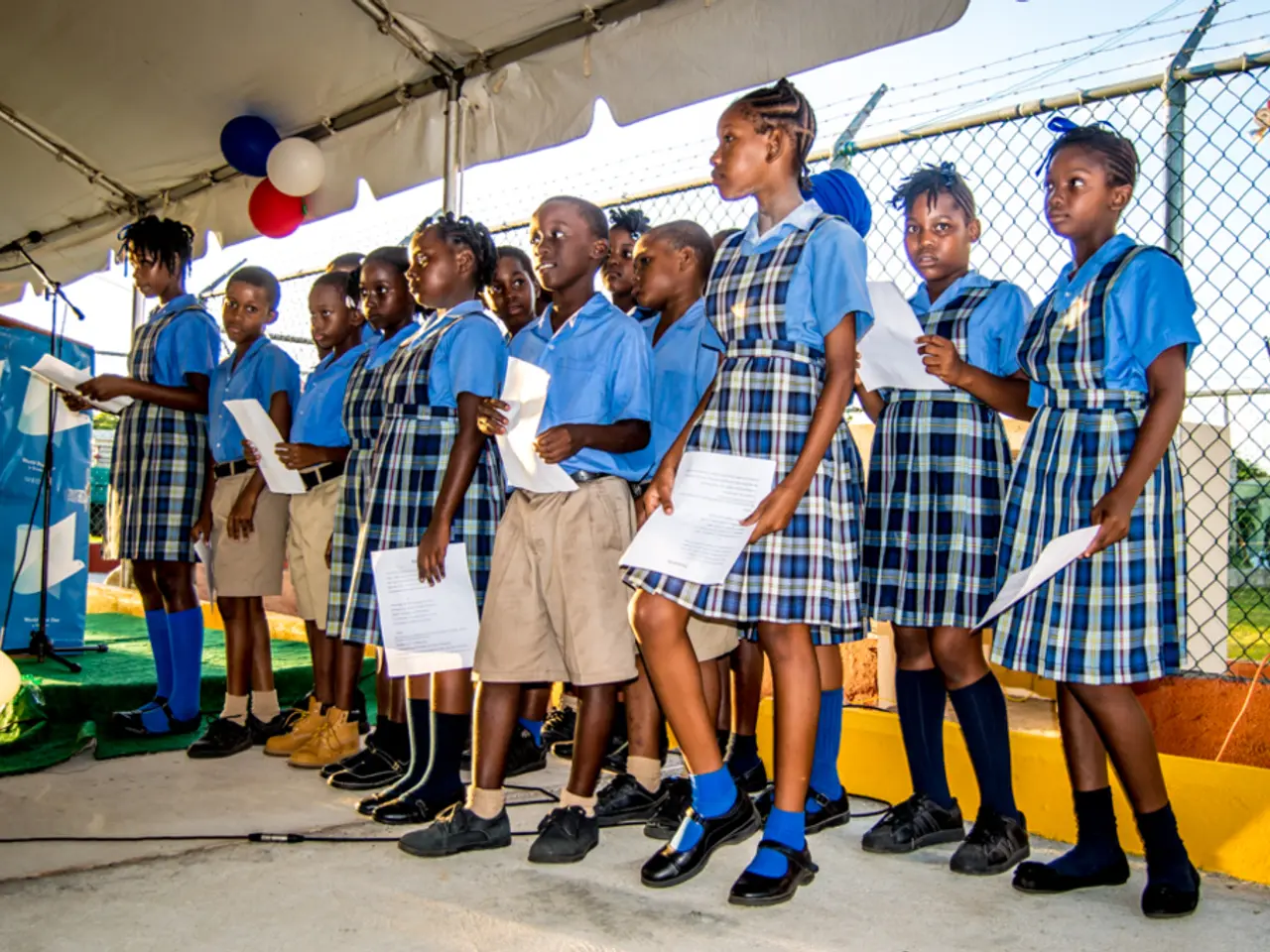Schoolchildren's Health Competencies fall short, reveals DAK prevention radar
In a recent study conducted by the IFT-Nord (Institute for Therapy and Health Research) in Kiel, it was revealed that health literacy among German schoolchildren is a pressing concern. The study, presented in the current issue of the DAK-Präventionsradar, surveyed over 26,500 schoolchildren in the 2024/2025 school year.
According to Professor Reiner Hanewinkel, the lead researcher of the DAK Prevention Radar, health literacy is a crucial prerequisite for coping with psychological and physical challenges in a self-determined and healthy manner. However, the study found that only 16% of students have high health literacy, with the majority displaying low or moderate health literacy levels.
Mareike Wulf, Parliamentary State Secretary at the Federal Ministry of Education, Family Affairs, Senior Citizens, Women, and Youth, has expressed a desire to strengthen parents, teachers, and experts to convey health literacy. DAK board chairman Andreas Storm, on the other hand, has demanded the implementation of a school subject of health to promote the health literacy of young people.
The study also highlighted some alarming statistics. About one in six young people is sad or shows other depressive symptoms. Psychosomatic complaints are prevalent among all surveyed students: 65% experience fatigue at least weekly, and almost a third have sleep problems. Moreover, girls are more likely to display depressive symptoms, with more than a quarter displaying depressive symptoms in the 2024/2025 school year. Among adolescent girls with low social status, over 40 percent show depressive symptoms. Loneliness is also a significant issue for girls, with 41% feeling lonely and without friends often.
In response to these findings, the Federal Ministry of Education and Family Affairs plans to bundle all forces in society to combat loneliness among young people. They also aim to address the issue of health literacy at a societal level. Andreas Storm has called for urgent action to strengthen and protect children's mental health, emphasising the need for immediate intervention.
The Federal Ministry's efforts to combat loneliness and improve health literacy among young people are commendable. However, it is clear that more needs to be done to ensure that all schoolchildren have the knowledge and motivation to make healthy choices and cope with the challenges they face. The implementation of a school subject of health could be a significant step in this direction.
Read also:
- Nightly sweat episodes linked to GERD: Crucial insights explained
- Antitussives: List of Examples, Functions, Adverse Reactions, and Additional Details
- Asthma Diagnosis: Exploring FeNO Tests and Related Treatments
- Unfortunate Financial Disarray for a Family from California After an Expensive Emergency Room Visit with Their Burned Infant








